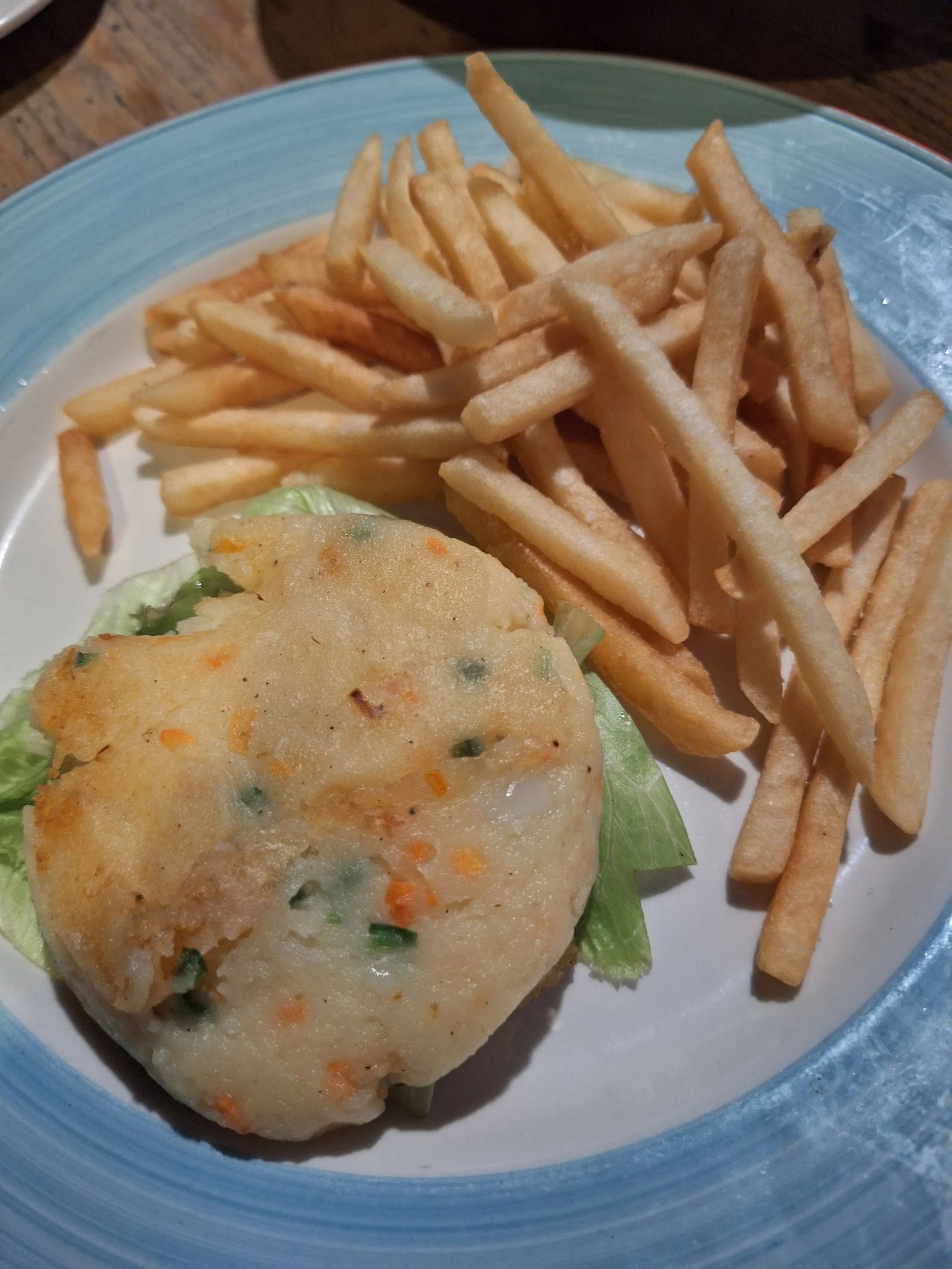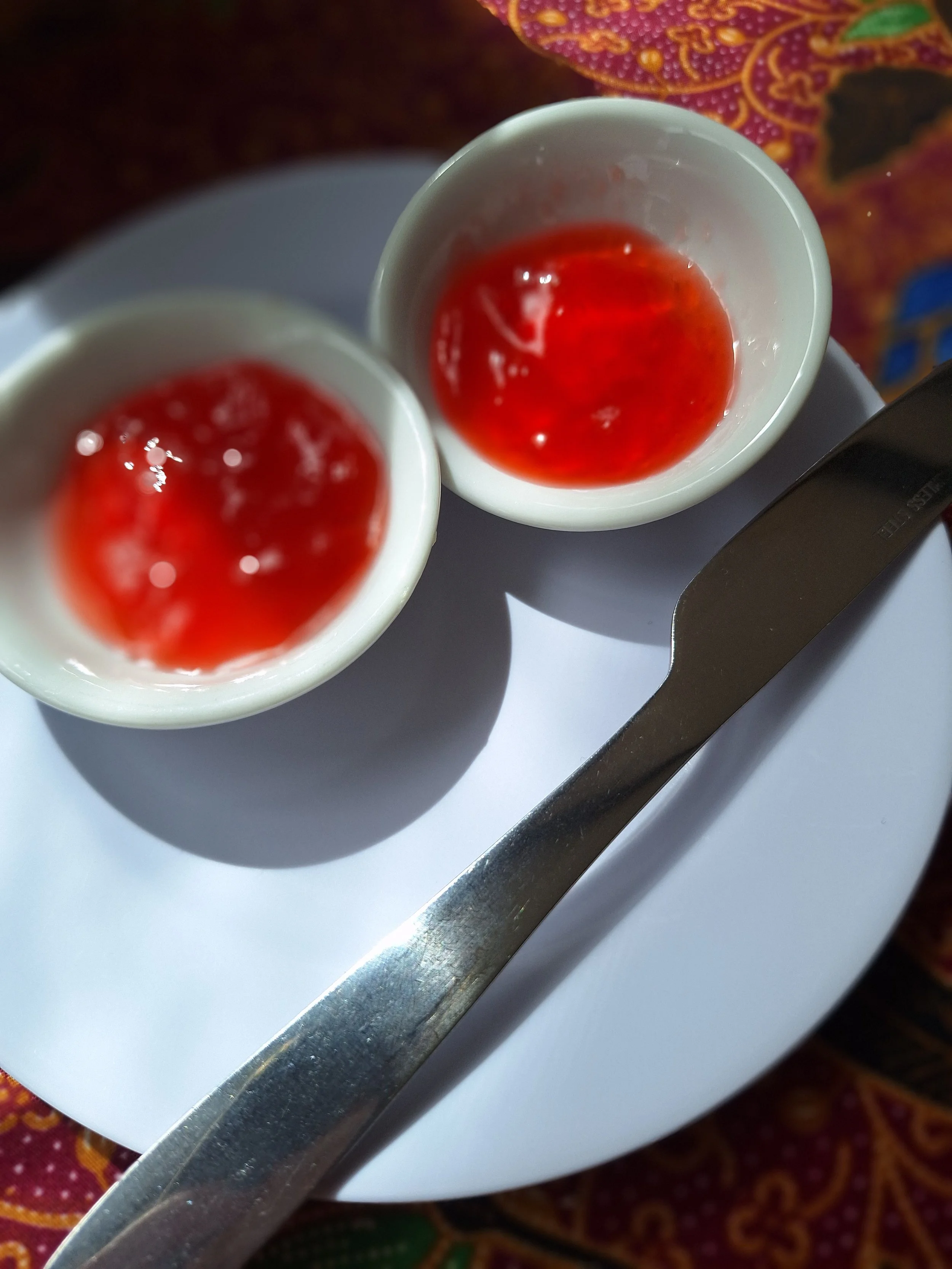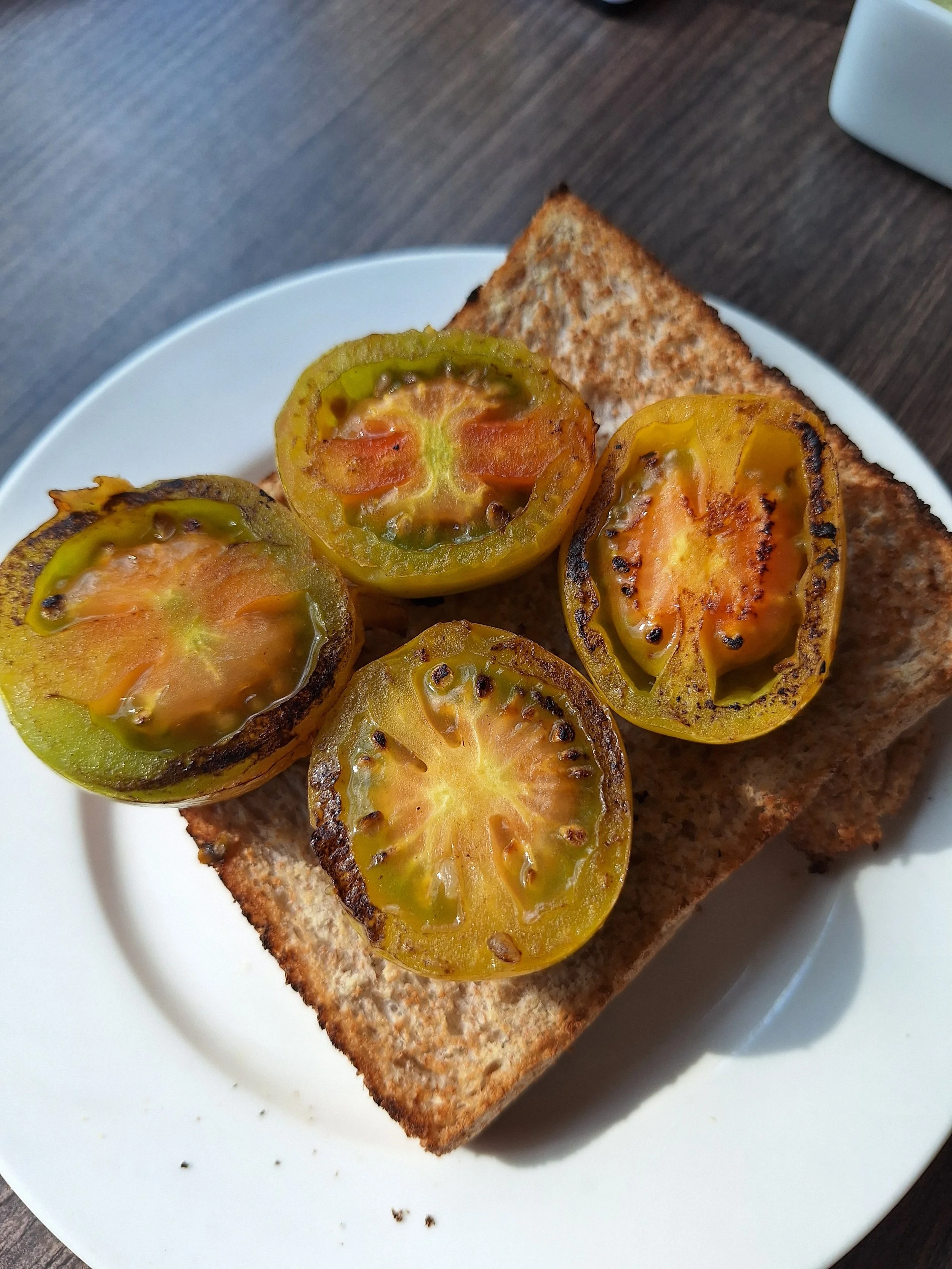My Vegan Food Nightmare in Borneo—And Why I’d Still Go Back
/This article was written by Hayley Cooper, Vegan Hospitality’s Co-Founder.
When you hear “Borneo,” your mind probably jumps to orangutans, lush rainforests, and off-the-beaten-path adventure. Mine did too. What I wasn’t prepared for was the total vegan food desert that awaited me.
I recently spent a couple of weeks in Borneo, chasing my dream of seeing wild orangutans. But in the process, I also discovered what it really means to be a vegan traveler when the local food culture just… doesn’t get it.
This is the story of how I survived (barely) on cabbage and plain white rice, celebrated my 7-year Veganversary with a soggy “potato burger,” and left with even more motivation to continue my mission to bridge this global hospitality gap for vegan travelers.
Now, you need to understand that, before Borneo, I’d just spent a blissful month in Bali (aka “Vegan Heaven on Earth”—read my Bali blog here). I knew Borneo wouldn’t be the same, but I wrongly assumed I could at least get by on fruit and veggies.
I wasn’t ready for the reality: a near-total absence of whole foods, almost no vegan options on menus, and the dreaded “we can make something for you” promise that turns into a sad plate of plain carbs.
Borneo, it turns out, is part of what’s considered the unhealthiest region in Southeast Asia—due in part to a startling lack of access to fresh produce. And as a vegan? That hits hard.
The Infamous Potato Patty
Let’s talk about my worst vegan meal in seven years (and yes, it deserves its own heading).
We were staying in a city hotel where the menu listed a “vegan burger patty.” I did the usual vegan dance—no mayo, confirm no egg or dairy—and the server came back to say, “The bun isn’t vegan. Is that okay?”
Sigh. Fine. At least I was getting a burger patty.
Nope.
What arrived was a deep-fried ball of mashed potato—with a couple of sad carrot flecks thrown in for color—served alongside… wait for it… chips (or fries, if you’re reading this from the U.S.).
Yes. My meal was all potatoes. I stared at my plate like, Is this a joke?
The Daily Menu: White Rice, Plain Cabbage, Repeat
Most meals followed a pattern: we’d scan menus, find nothing labeled vegan, and resort to ordering plain cabbage or bok choy from the veggie section, paired with white rice. Every. Single. Time.
No beans. No legumes. Tofu? A unicorn we only found in a vegetarian restaurant and—randomly—at a remote eco-lodge deep in the primary forest.
Eventually, we started buying tofu from supermarkets and bringing it to restaurants. “Can you please cook this with our cabbage?” became our dinner conversation.
After days of this, I said to my partner, “If I see another plate of cabbage and plain rice this year, I’m going to cry. And also, just… not eat it.”
Noodles for Breakfast, Toast for Dessert?
Let’s not forget the breakfast struggle.
Unless you’re into noodles first thing in the morning (and not the fun kind—just plain), your options are toast with mystery jam (colored like highlighters), watermelon, or the occasional potato.
Once, I heroically found an avocado and brought it to breakfast like a prized truffle. It was the culinary highlight of my week.
Mislabeling = Major Red Flag
One of the most shocking experiences happened in a hotel in the city. They had a huge buffet, but my options were fruit and toast, which I could have with jam, peanut butter, or tomatoes. I opted for tomatoes, which were in a warm buffet dish labeled simply as “tomatoes.”
When I got to my table, I noticed small white specks on them. Since I was already on high alert, I thought it couldn’t possibly be cheese because the label didn’t mention it. However, I saw cheese nearby at the buffet, so I asked a staff member. He first said it was just tomato and its juices, but when I specifically asked if it contained cheese, he then said, “Yes, sprinkled with a little cheese.”
This shocked me—not just as an ethical vegan, but because this kind of mislabeling could be deadly for people with food allergies. Mislabeling is not something restaurants and hotels should be taking a chance with, and I had recently read about a young girl who died after being served dairy in her coffee instead of the soy milk she had asked for.
But Here’s the Wild Twist…
Despite the rice-fueled meltdowns, I would still recommend Borneo—just not for the food.
We didn’t go for the cuisine—we went for the wildlife. And wow, did nature deliver. Outside of sanctuaries, we saw five orangutans in the wild (including a massive male!), along with flying squirrels, slow lorises, western tarsiers, and monkeys galore.
It was a dream come true, and one of the most unforgettable experiences of my life.
The Bigger Problem—and the Bigger Picture
Borneo welcomes travelers from all over the world—Australia, Holland, the UK, you name it. And many of these countries have fast-growing vegan populations.
If just one hotel or restaurant group stepped up to offer truly vegan-friendly food, they’d not only serve an underserved audience—they’d stand out big time in a competitive market.
This trip taught me so much. As someone who’s usually self-catered or in vegan hotspots, I’d never experienced the full challenge of being a vegan traveler until now. And it made me even more passionate about pushing for change—because no one should have to choose between amazing travel experiences and being properly fed.
So yes, I survived on cabbage and rice. But I also came back more fired up than ever to help the hospitality world realize:
Vegan travelers exist. We matter. And we’re hungry—literally and figuratively—for better experiences.
Would you travel to a destination with zero vegan options if the wildlife was once-in-a-lifetime? Or have you had a similar experience? Send us a LinkedIn message as we would love to hear it about your experience, or email me at hayley@veganhospitality.com.
Do you work at a hotel that needs support with confidently catering to vegan guests? From staff training to menu development, this is our speciality. Contact us here to request a free 30 minute strategy session.
Is your hotel already vegan friendly? Get recognized for meeting global standards with our Vegan Hospitality & Tourism Certification.






